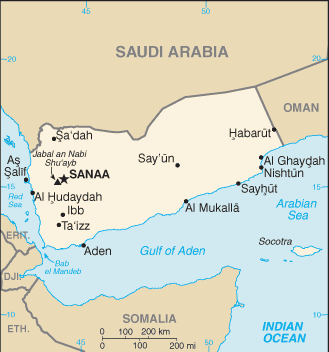In March of last year, Saudi Arabia attacked Yemen, promising the install former President Abd-Rabbu Mansour Hadi in power. They had a substantial coalition, which included the United States, who participated both in the naval blockade of the country and, to a much greater extent, in mid-air refueling of Saudi bombers.
 As the war dragged on and international outcry over Saudi war crimes grew, the Obama Administration desperately tried to downplay their involvement in the conflict, with an eye toward avoiding legal liability. Last night’s US missile attacks against coastal radar installations has made that an even tougher sell.
As the war dragged on and international outcry over Saudi war crimes grew, the Obama Administration desperately tried to downplay their involvement in the conflict, with an eye toward avoiding legal liability. Last night’s US missile attacks against coastal radar installations has made that an even tougher sell.
The US has never been the “minor coalition partner” type, after all, and throughout the war, many Yemenis have had the sense that the US is a substantial, if somewhat covert, participant in the war. Attacking Houthi installations, then publicly admitting they didn’t know the Houthis fired the missiles they were “retaliating against,” means America’s profile in the war has increased dramatically, and everyone who saw this as America’s war feels vindicated.
While the Pentagon is desperately arguing that the attacks on the Houthis last night are totally different from the attacks on the Houthis over the last 18 months, it’s unlikely to convince anyone this is the case, particularly when they admit they’re not sure why they targeted the Houthis in the first place. It may ultimately oblige the administration to be more up-front about America’s position on the war.


